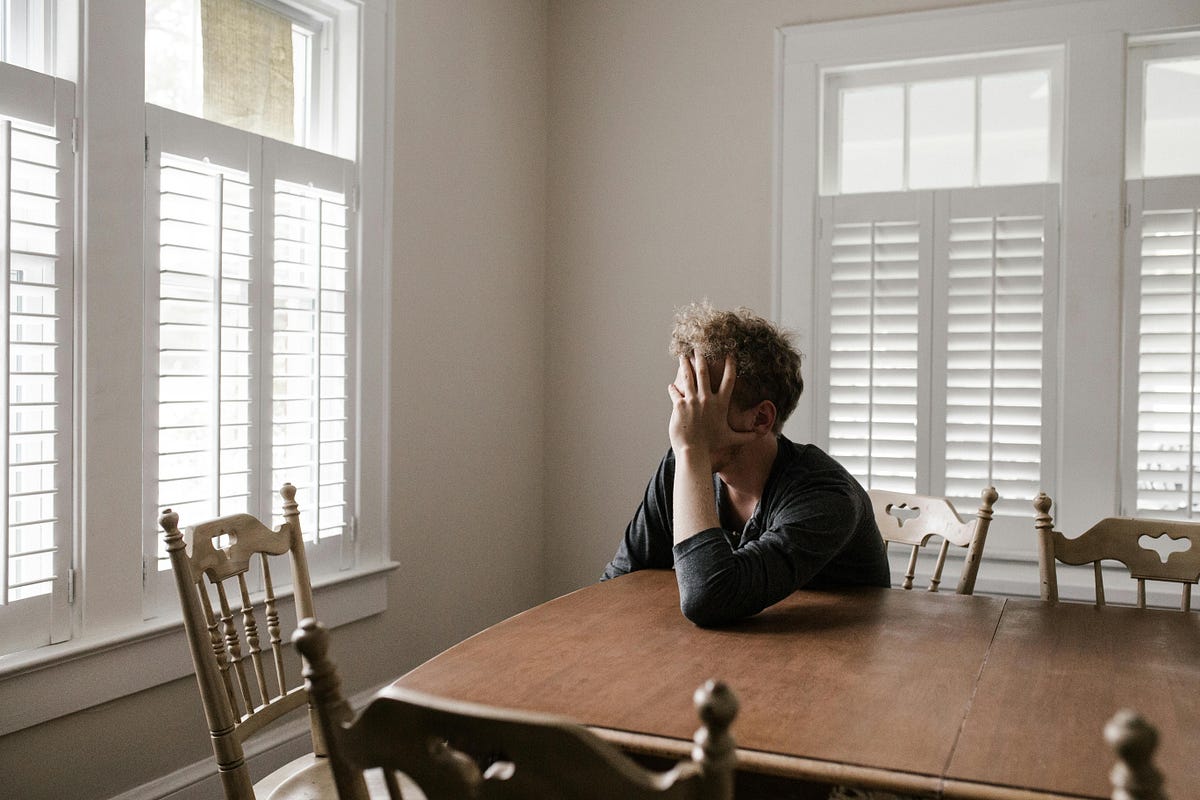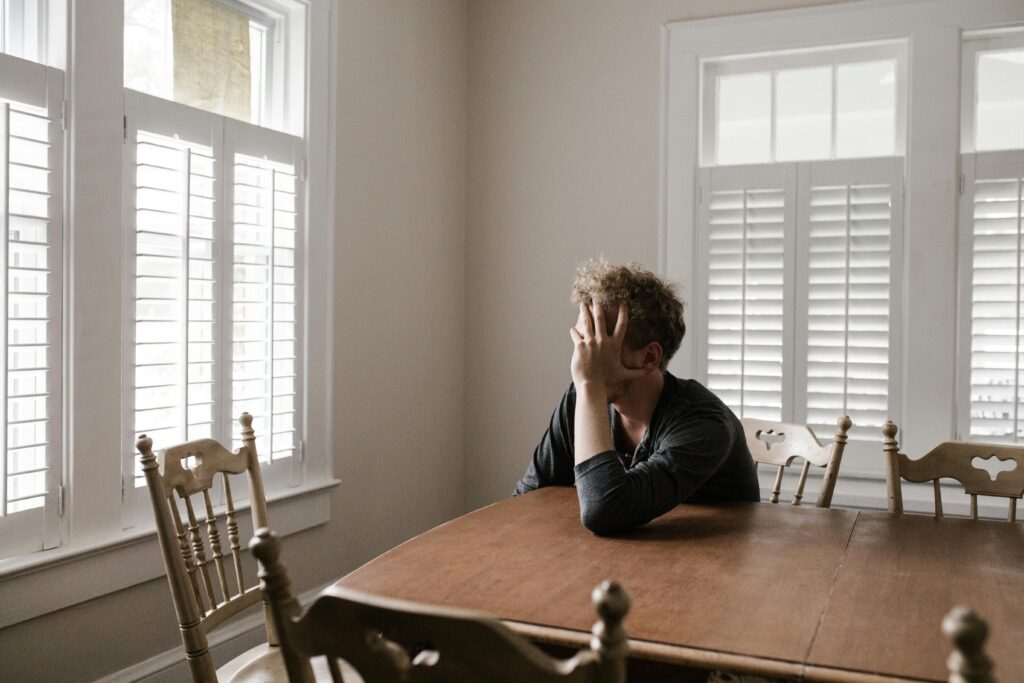These important questions can change how you handle anxiety. By asking yourself these simple yes-or-no questions whenever you feel anxious and thinking about the answers, you can easily find the best thing to do.

First, ask yourself: Is the thing I’m worrying about really dangerous? Is it dangerous for you? If it’s not about you, we’ll talk about that later. But right now, think about whether this thing is actually risky for you.
If the answer is no, then you don’t need the fight-flight-freeze reaction your body is having.
I know it’s hard to calm down, but there are ways to help. Try changing how you move or act to make yourself feel safer right now.
When I said it’s important to think about these questions, I meant it.
Even if your answer is no and the situation isn’t physically dangerous for you, it might still be a worry.
But it’s a problem that needs a different way of dealing with it. Anxiety can make us think it’s crucial, but we need to step back from it. This issue is real, but it doesn’t need anxiety.
It needs attention, maybe some time, looking into it, or talking to others or a counselor. It’s a problem, but it doesn’t need you to be anxious or have a fight-flight-freeze reaction.
Explaining Fight-Flight-Freeze and Ways to Stay Calm
If the situation is really dangerous, ask yourself: Is it dangerous for you right now? If yes, don’t read this article. Instead, react with fight, flight, or freeze instincts.
These reactions are driven by our primal brain, which acts quickly to sense danger and urges you to protect yourself.
If your problem is dangerous right now, you should react by fighting, fleeing, or freezing. But if it’s not currently dangerous, you don’t need to be anxious.
Let me give you some examples to explain this further. Feel free to share your own examples in the comments below.
I’ll also talk about common responses I’ve received when explaining this idea. Even if a problem is serious, if it’s not happening right now, you need to think about it long-term, which uses different parts of your brain.
When your brain senses danger, it can make you feel anxious, but reacting with fight-flight-freeze isn’t always helpful.
So, how can you relax? I’ve found that physical calming methods usually work best. But these questions also tackle the idea that we think we need to feel anxious. Let me give you some examples to show this.
Common Situations That Trigger Anxiety and How to Approach Them
There are webinar called “Rewire Your Brain for Joy and Confidence” offers fascinating insights. They talk about how our brains tend to focus on the negative and survival, which often causes anxiety.
They use examples to explain this during the webinar and stress that focusing on survival isn’t necessary for most of the problems we encounter.
My friends often ask questions like,
“What if I lose my job? That’s survival, right?”
or “I have a health issue with no fix, should I worry?”
They also say things like, “I have a serious illness, so it’s dangerous,”
or “My loved one’s risky behavior worries me, but I can’t stop them.”
Let’s talk about those four situations. Yes, most people would feel a little anxious in any of them.
Some stress can help us focus, which is okay. But if it’s a big rush of adrenaline and cortisol, making us really anxious, it doesn’t help in any of those situations. And it’s not needed either.
Finding Solutions and Coping Strategies in Difficult Situations
I’m not saying it’s abnormal to feel this way, and I’m not judging anyone. I’m just saying there are tools that can help, no matter how serious the problem is.
Let’s say someone worries, “Losing my job means I can’t eat or pay rent.” Losing a job is serious, but it’s not an immediate danger to your life. To deal with this, you need to think ahead.
Long-term thinking doesn’t always take a lot of time; it could be a week or a year. But it does need planning and action steps. We’re at our best when we’re focused but relaxed.
I discuss this a lot with my friend and community, “Roadmap to Happiness.” Many people don’t grasp what it means to be alert yet relaxed, but it’s possible.
When we’re alert, focused, and relaxed, we solve problems effectively.
Now, let’s discuss another difficult situation: dealing with a chronic illness. It’s tough, but feeling anxious won’t make it better. You might need to watch out for things that can help manage the illness or make you feel better.
This could mean focusing on your sleep, diet, exercise, rest, or other things. You might also need to see doctors.
There are many steps you might need to take, but none of them need you to feel panicked or anxious.
Now, let’s think about people dealing with life-threatening illnesses. It’s really hard. I understand your worries, but there’s a difference between useful and useless worry.
Most of the time, our anxiety doesn’t help; there’s not much we can do about it.
Useful worry means taking action, like looking up information or getting another doctor’s opinion if you’re not happy with the first one. Sometimes, you just need to accept things and focus on living your life the way you want until things change.
Focusing on what you can handle is important.
Spirituality, whether through religion or feeling connected to others, can bring comfort. Keeping close ties with loved ones and staying focused on your goals is crucial.
I think about this for myself. I’m getting older, and I wonder about how I want to live each day. You can think about this without feeling anxious.
Now, let’s discuss the fourth situation: when someone you love is doing risky things, but you can’t stop them.
Many people would naturally worry in such cases. But it’s important to tell apart useful worry from unhelpful worry. Accepting that you can’t control the situation can be tough and sad, making you want to find ways to change it. This cycle of anxiety can seem never-ending.
Wrap it up
Absolutely, just tell me if this makes sense. It’s interesting how people often respond when I talk about these anxiety tips.
They might say, “That makes sense for other stuff, not for mine.” But really, these tips work for everyone, no matter how big or small the problem is.
Thanks for reading! Please take a moment to share your thoughts and experiences in the comments below. Don’t forget to share if you found it informative ❤
Let me know what you think, I’m trying to keep it simple. God bless you, Love you all, take care!

